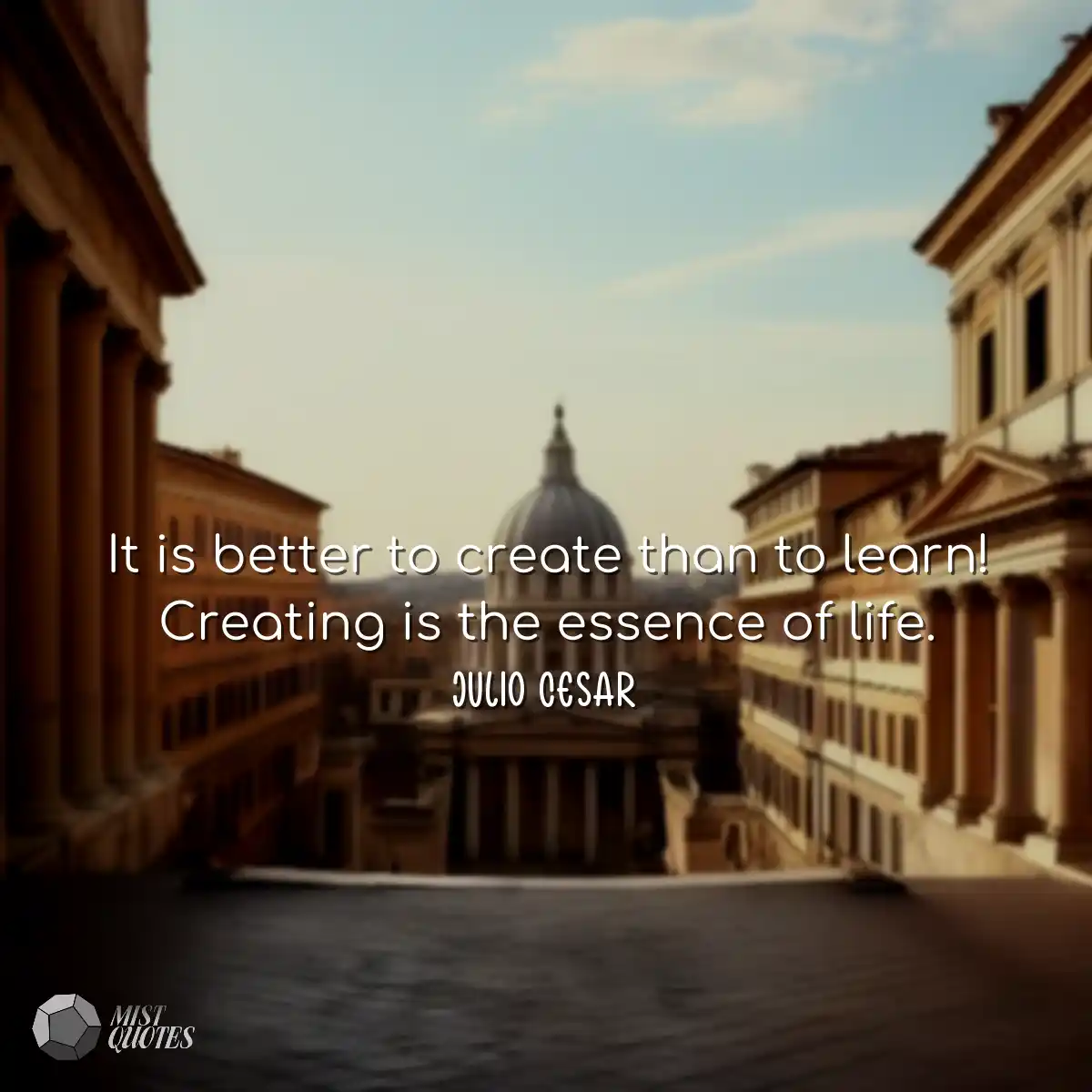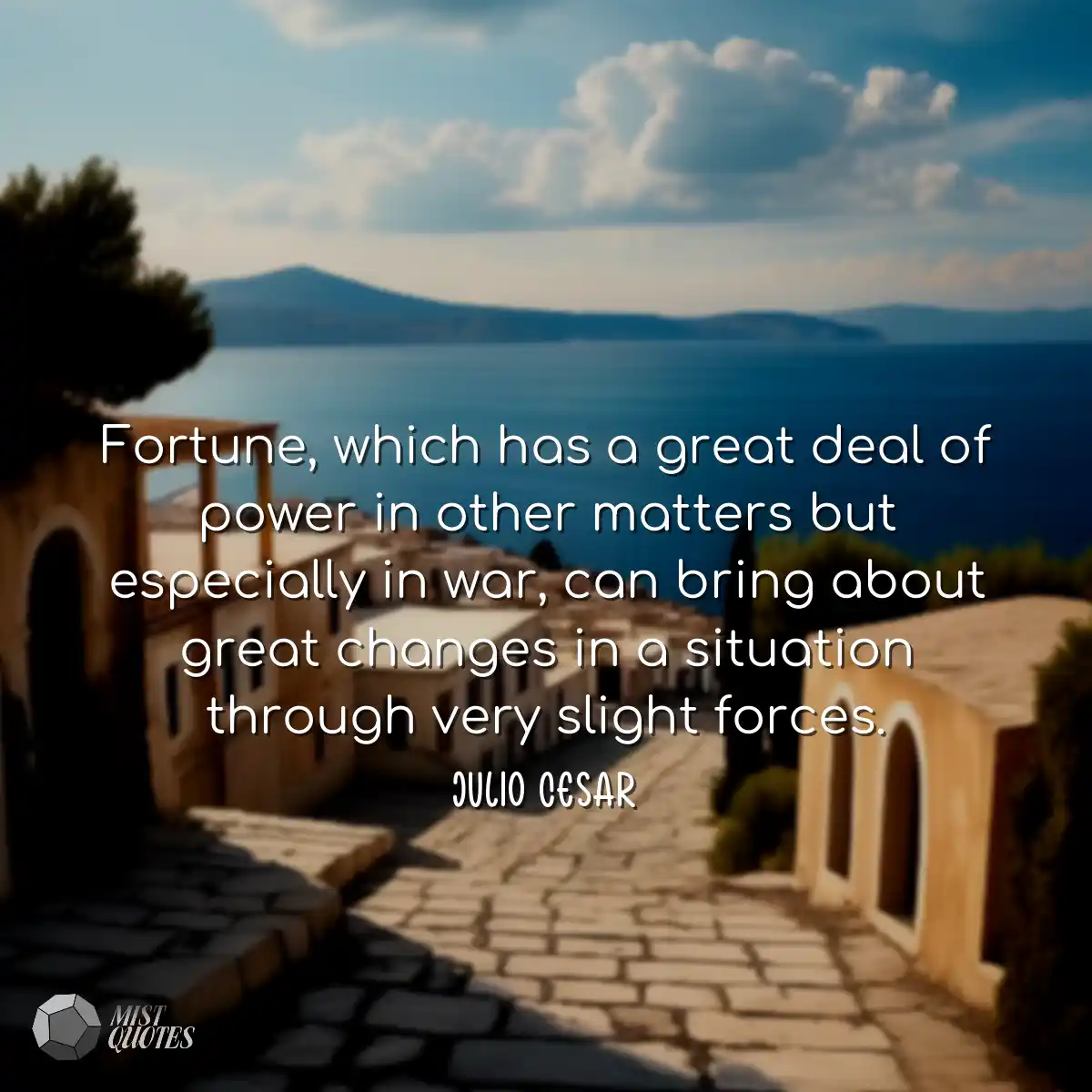
Julio Cesar
Military, Politician, Lawyer

I came, I saw, I conquered.

The die is cast.

Experience is the teacher of all things.

The fault, dear Brutus, is not in our stars, but in ourselves.

It is better to create than to learn! Creating is the essence of life.

As a rule, men worry more about what they can't see than about what they can.

Fortune, which has a great deal of power in other matters but especially in war, can bring about great changes in a situation through very slight forces.

Men willingly believe what they wish.

Cowards die many times before their deaths; the valiant never taste of death but once.

In war, events of importance are the result of trivial causes.
Caesar's military campaigns were instrumental in expanding the territorial reach of the Roman Republic and solidifying his own power. One of his most notable conquests was the Gallic Wars (58–50 BCE), during which he subdued the various tribes of Gaul (modern-day France and Belgium) and greatly extended Roman control over the region. His victory at the Battle of Alesia in 52 BCE, where he successfully besieged the fortress of Vercingetorix, marked a significant turning point in the conflict.
Following his conquest of Gaul, Caesar turned his attention to the civil war brewing in Rome. He clashed with his rival, Pompey the Great, in a series of military engagements known as the Roman Civil War (49–45 BCE). Caesar emerged victorious after defeating Pompey's forces at the Battle of Pharsalus in 48 BCE, solidifying his position as the undisputed leader of Rome.
In addition to his military prowess, Caesar implemented a series of political reforms aimed at addressing social and economic inequalities within the Roman Republic. His reforms included granting Roman citizenship to residents of conquered territories, implementing land reforms to benefit the urban and rural poor, and restructuring the calendar to create the Julian calendar, which served as the basis for the modern Gregorian calendar.
Caesar's consolidation of power and his perceived threat to the traditional institutions of the Republic led to opposition from conservative senators, culminating in his assassination on the Ides of March (March 15) in 44 BCE. Despite his death, Caesar's political legacy endured, laying the groundwork for the eventual transition from the Roman Republic to the Roman Empire.
Julius Caesar's impact on Western civilization cannot be overstated. His military conquests expanded the borders of the Roman Republic to their greatest extent, while his political reforms laid the foundation for the transition to imperial rule. Additionally, his life and accomplishments have inspired countless works of literature, art, and theater, cementing his status as one of history's most iconic figures.
From his military triumphs to his enduring influence on politics and culture, Julius Caesar's legacy continues to resonate to this day. His name has become synonymous with power, ambition, and the complex interplay between individual leadership and broader historical forces. As such, Caesar remains a figure of fascination and study for historians, scholars, and enthusiasts alike, ensuring that his legacy will endure for centuries to come.
Recent Quotes
"To help a friend in need is easy, but to give him your time is not always opportune."
Charlie Chaplin
"Life can be wonderful if you're not afraid of it. All it takes is courage, imagination… and a little dough."
Charlie Chaplin
